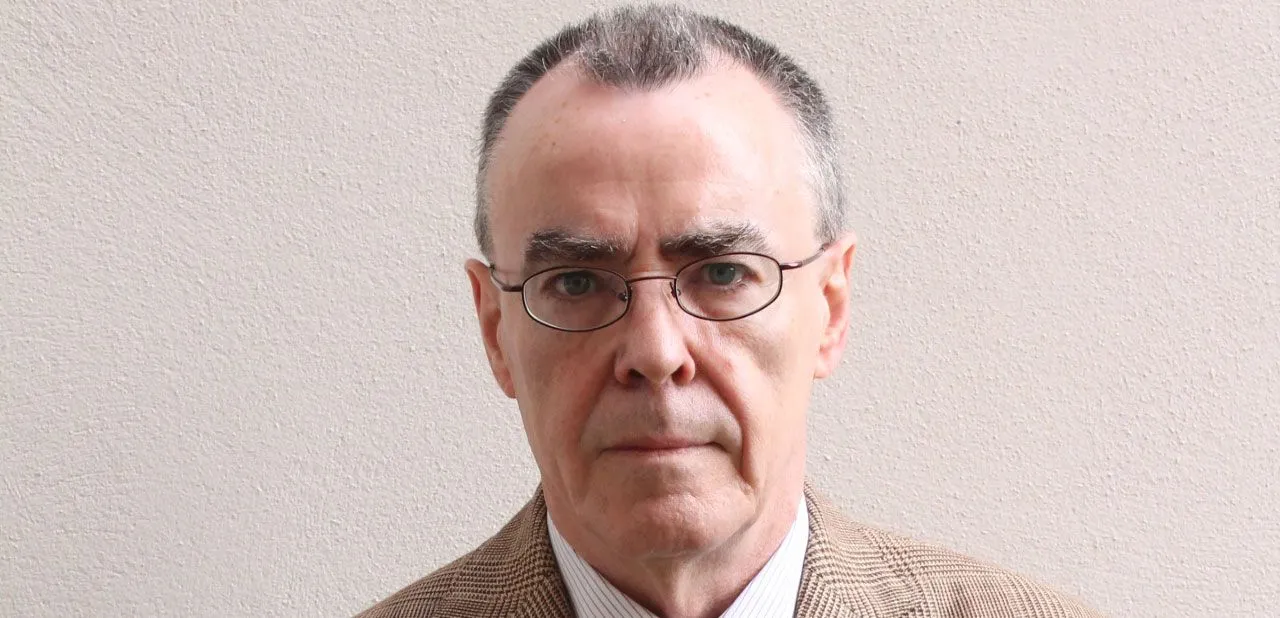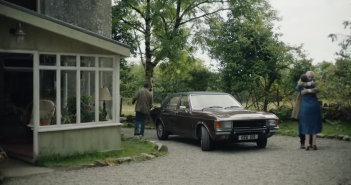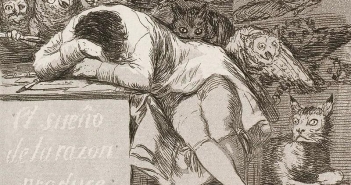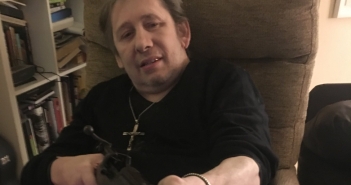Belfast writer, and poet, Ciaran Carson carried a black flute with silver keys on its main body, which he would screw together to play sometimes. In class. At Queen’s University, Belfast.
He once asked me, “What would you have liked to become in life?”
I answered: “Either a master carpenter, a mathematician, or a pianist.”
“I agree with the master carpentry, I wanted to become one of those myself.” Ciaran replied earnestly.
Once in a writing group – the infamous Group – he gave me a lot of advice on a poem, which was inspired by the infamous Blackbird of Belfast Lough poem, putting his own literary stamp on it. To this I responded: “Ah, but Ciaran, that wouldn’t be my poem anymore, it would be yours.”
He considered this for a moment and said, “Maybe, maybe.” A couple of attendees came up to me afterwards and said: “You did well to challenge him there.”
You see, Ciaran, sometimes could get inside a person’s work, kick its rafters down and plant new foundations – his own. That didn’t really endear him to some participants. I think he resented my protestation, but on reflection probably thought I was correct. A person’s writing can become a surrogacy, so they can be precious about it. If someone wrestles that babe in arms from them it creates difficulties.
Ciaran was a dichotomy, like myself; as we all can be. Blowing warm one moment, cold the next. I recall him with his horn-rimmed glasses, tweed blazers, and pork pie hat. Like a detective from a 1950s novel, set in middle England; or possibly a character from Z-Cars.
He amused me. I suppose I amused him sometimes, when he wasn’t bewildered by my anxious nature at that time. I felt a lot of social anxiety which I was not in control of. He too stuttered and became nervous. It jammed him up. I was jammed up in my own head, so, I related to that. I empathised by nodding.
I thoroughly enjoyed read his interesting book Shamrock Tea.
His take on Dante was widely embraced and commended internationally. He spoke to me one day about when he was in Italy, where learned folk indulged him, calling him Professore or Maestro! But when he got back home he was still just a “specky bastard.”’ So he mused, with a smile on his face. Such is the iron-raw vernacular of back home.
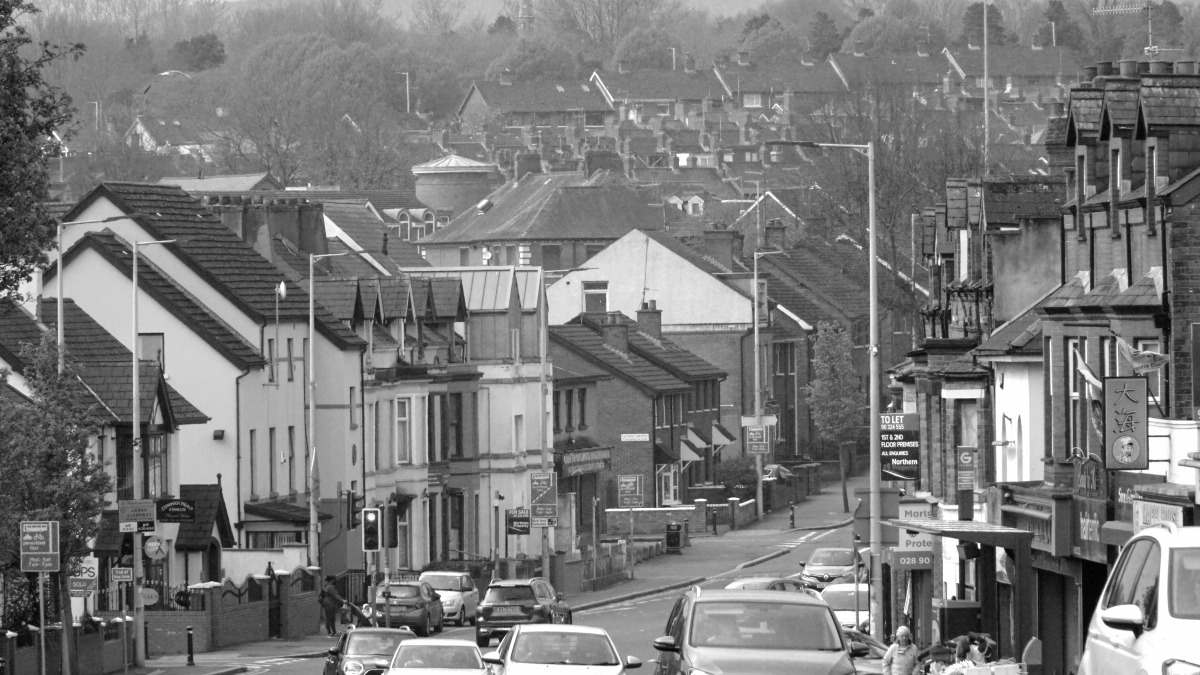
Belfast. Image: Fellipe Lopes.
In his poem Snow the tic-tac-toe meter and the pat-pat of the table-tennis bat, of the flicking rhythm of the flakes at his window, was successfully achieved.
Ciaran’s mind was shaped by the conflict. How could it not be?
I recall one Presbyterian writer at the Seamus Heaney Group aligning Ciaran with Republicanism because he was from West Belfast – even though he had the same surname as one of the founders of Ulster Edward Carson. But West Belfast was a good enough reason for him. He thought Paisley was right, the IRA needed to go around in sackcloth and ashes to atone for their sins.
That barbaric violence, as he saw it, was only inflicted on the Unionist community. But there was little mention of redress for the Loyalist pogroms against the Nationalist community since the 1920s.
Ciaran didn’t respond too much, but I knew the association would have encroached on him. I once had read in an Irish newspaper piece that Ciaran was asked why didn’t he join the struggle. He answered honestly: “I was too scared.”
He had Protestants in his family background. Also, I am sure, some Republicans but that’s the dichotomy of Belfast. Grey areas. Not black and white. Not binary. Coded. Just a miasma of deeply ingrained historical decisions made, and mandated, by people who have long since passed on and probably don’t give a Frenchman’s fart now.
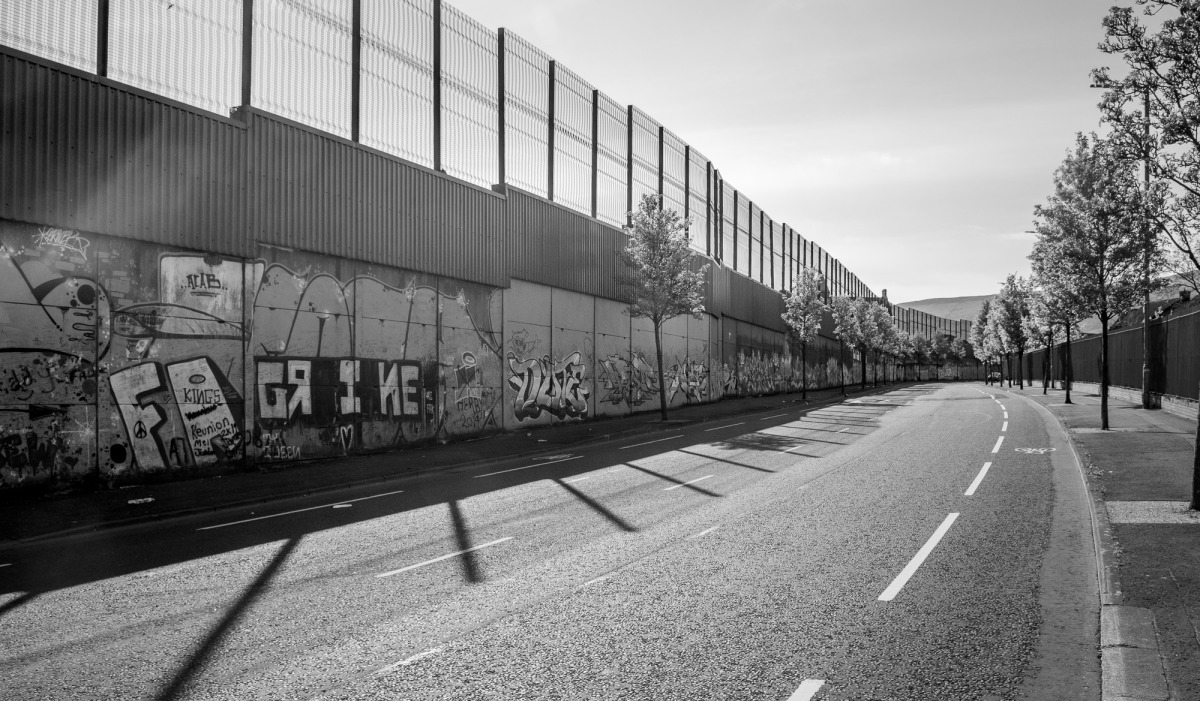
The Cupar Way ‘Peace Wall’. © Daniele Idini
He enjoyed my poetry. At times.
There was one which I have lost now about, well, it was my take on John Masefield’s Cargoes set in Latin America during the period of the Aztecs and Montezuma. At least that’s what one of his students on the Master’s course, a Brazilian lady, told me after class one day.
Inevitably I became persona non grata at Queen’s because I would not suck up to those with a modicum of power and who were established writers there.
I recall one senior person looking at me one day in a one-to-one like I was a piece of cake. I wondered about his heterosexuality, felt uncomfortable, excused myself, and left. It was confusing and I did not go back. Doubtless, he verbally discredited me to his peers.
Another established writer was angry that I got onto a post-grad course that they were running and more-or-less told me so in a sit down meeting: “There’s the door. You don’t belong here.” Because I did not worship them and their work. And I struggled with my English composition (Some change there, huh?).
That was hard to take. I was hurt by that. I was embittered for a while, but I had experienced a lot of rejection already by that stage in my life. In truth I was in the depths of alcoholism at the time, and found it a real strain to really buckle down and focus. But I still had a creative brain, and a universal beat.
I think Ciaran sensed that because it was his partial reference, and another’s, who got me on to that post-grad course, but that annoyed some people. Power struggles, ego, and insecurity all played a part in the mentality of the Seamus Heaney Centre.
The last time I met Ciaran was in 2017, I was homeless, again, and limping from out of the Industrial temps’ office in Shaftesbury Square, securing some work in a bakery in East Belfast, he looked at me, and I looked back, but we both headed on our separate paths.
I emailed him a while later but he did not respond. I had heard he was seriously ill by then. He was a heavy smoker and so was I.
When he passed away, I wondered about the fait accompli eulogies by those in the narrow academic world in Belfast. I wondered about his dichotomous way of being.
Ciaran wasn’t perfect – who is? But I am richer from the experience of meeting him, interacting with him, and learning from him. He was a very sound writer, read extensively, questioned, loved his music, and knew his literary onions.
Wherever he is – I hope he’s happy.
Ciaran Carson – 9th October, 1948 – 6th October, 2019
Featured Image: Gerard Carson

